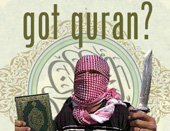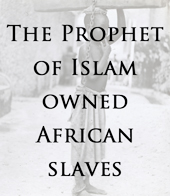TheReligionofPeace
|
|
TROP is a non-political, fact-based site which examines
the ideological threat that Islam poses to human dignity and freedom
|
|
|
Jihad Report
Dec 06, 2025 -
Dec 12, 2025
|
| Attacks |
10
|
| Killed |
27
|
| Injured |
22
|
| Suicide Blasts |
0
|
| Countries |
6
|
|

|
Jihad Report
November, 2025
|
| Attacks |
105
|
| Killed |
434
|
| Injured |
219
|
| Suicide Blasts |
4
|
| Countries |
18
|
|
List of Attacks
|
|
|
It's much easier to act as if critics of Islam have a problem with Muslims as people than
it is to accept the uncomfortable truth that Islam is different
|
|
|
|

|

|
|
|

What can we learn about
Islam from this woman?
|
|
|
|





